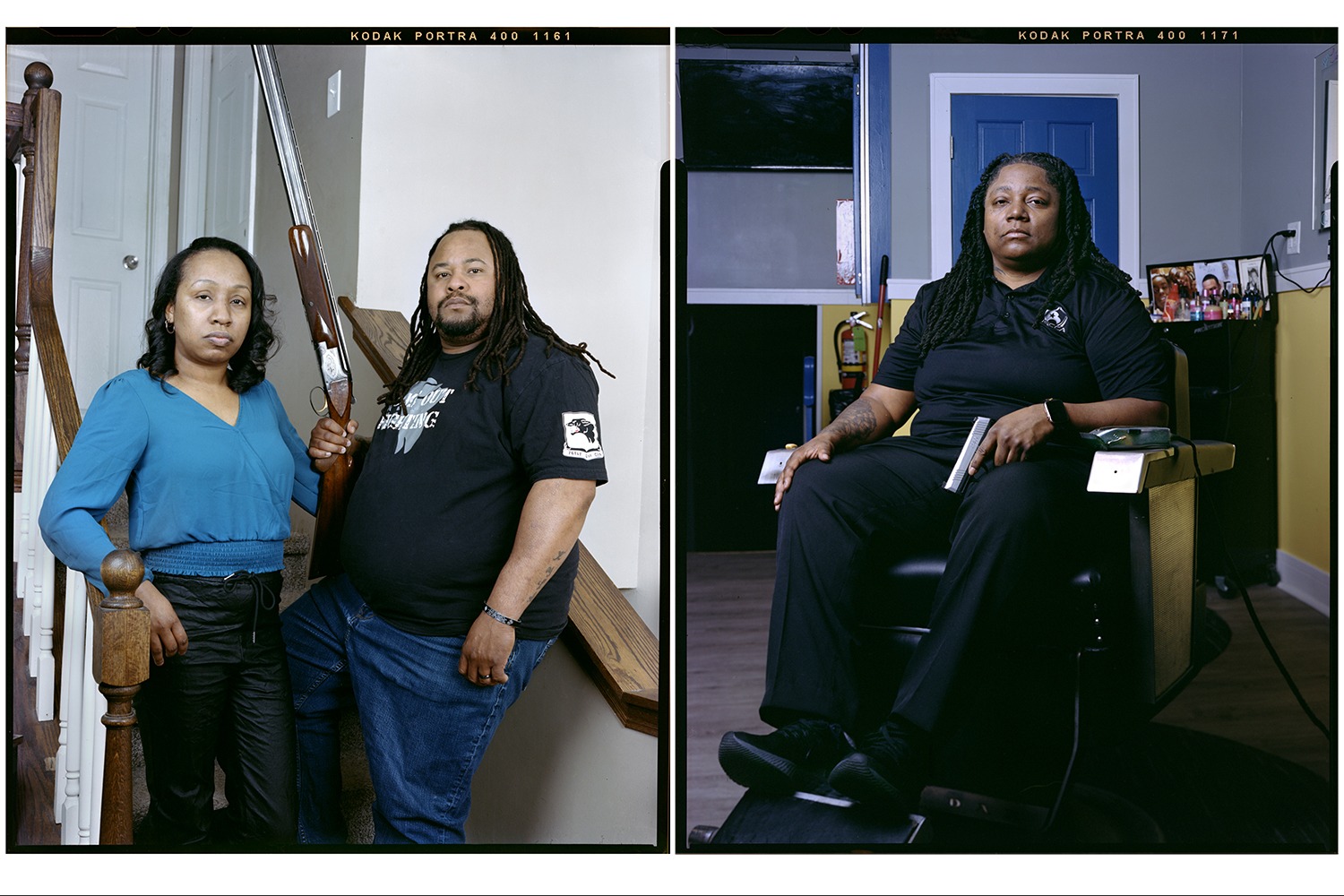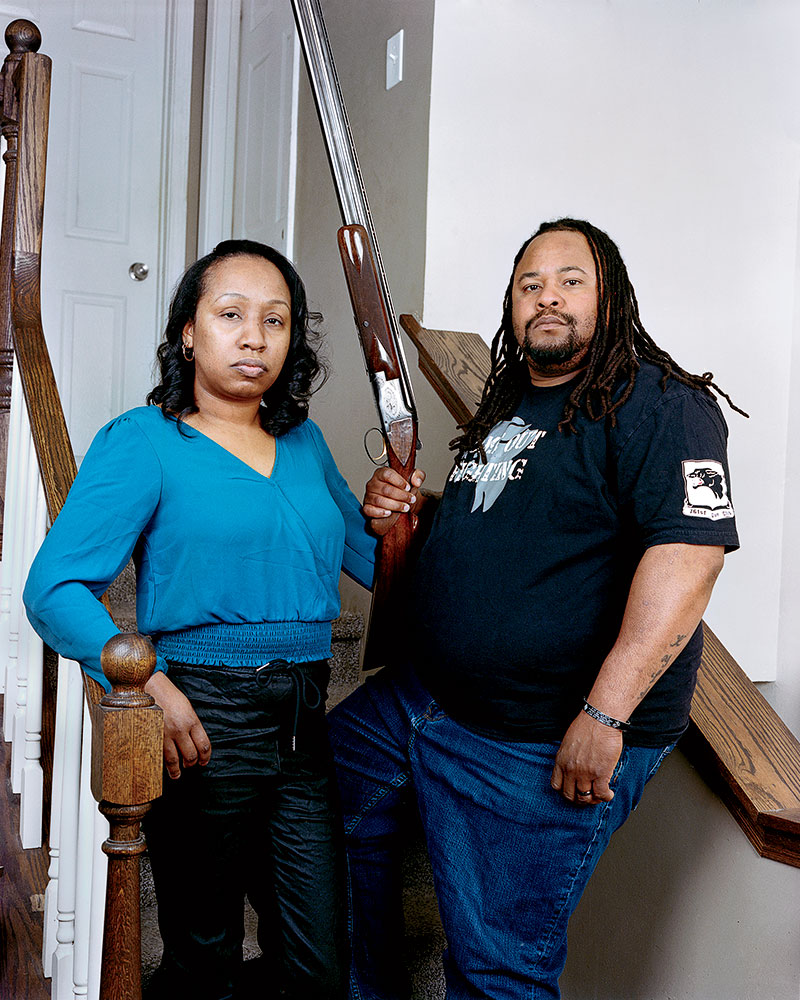Growing up on the South and West Sides, Christian K. Lee got a firsthand look at responsible gun ownership: His father, a state police officer, kept a firearm at home. But that experience didn’t jibe with depictions on TV. “I never saw a positive image of African Americans around guns,” Lee says. “So I started to make those images that I knew existed.”
While stationed with the army in Texas, Lee began photographing Black gun owners and listening to their stories. He continued the project after moving back to Chicago, where he’s pursuing a master’s in photography at the School of the Art Institute. Coinciding with a striking rise in Black gun ownership in the United States, his series, Armed Doesn’t Mean Dangerous, offers a novel perspective on a charged subject. “I’m not trying to promote gun ownership,” he says. Instead, he wants to spotlight why Black people are arming themselves, namely systemic problems such as ineffective policing and communities made more dangerous from disinvestment. “When people look at gun violence, they just look at how to limit the gun. We need to get more to the root of the issue.”
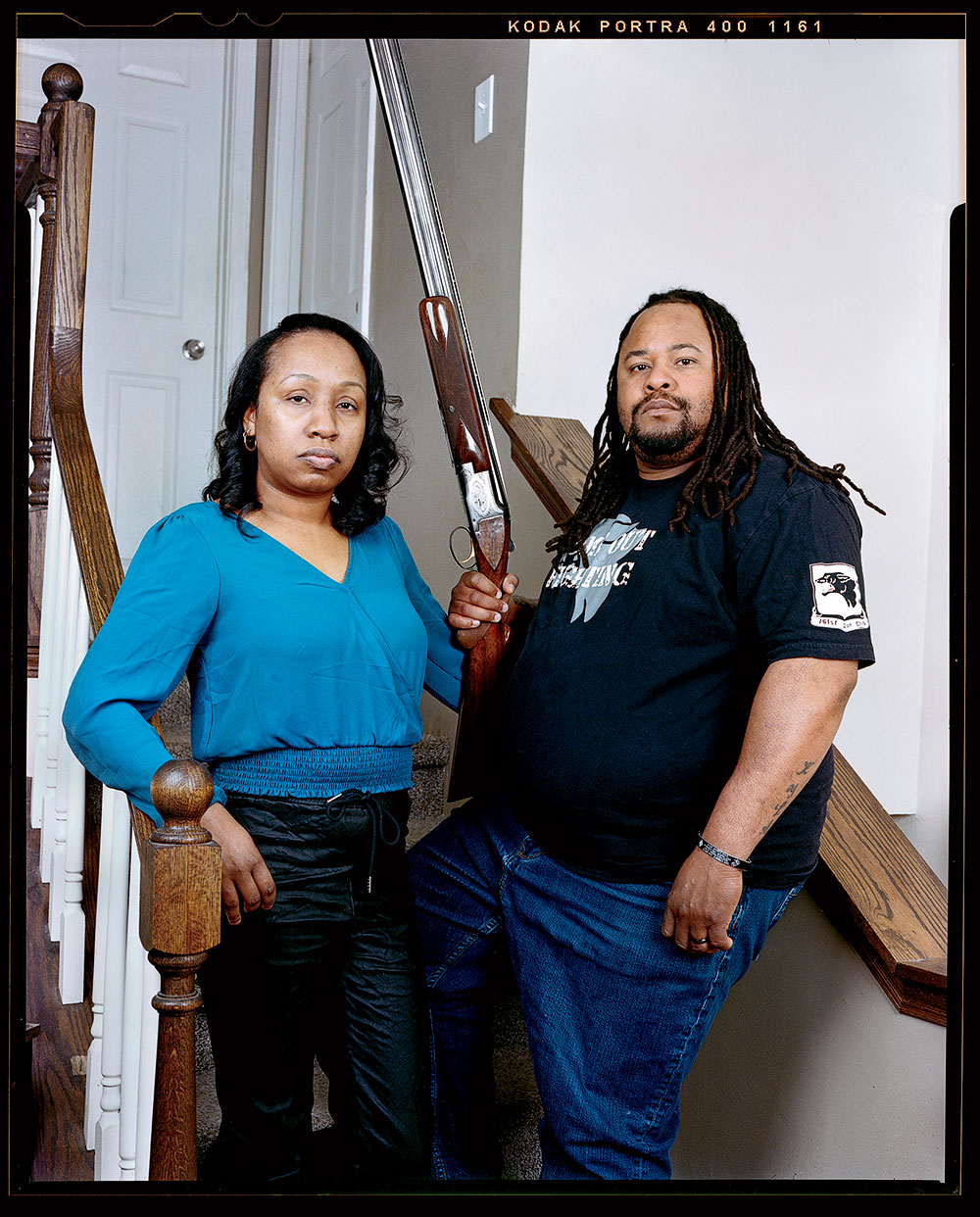
Kourtney Redmond
Redmond — photographed with his wife, Victoria, in their Matteson home — sees two types of gun wielders shown in the media: police officers and “bad guys.” But he doesn’t fit either. With self-defense in mind, he acquired his firearm owner’s identification card when he was 18. Redmond, who served eight years in the Marine Corps, is now a firearms instructor and the Illinois director of the National African American Gun Association. “Some people don’t want you to carry a firearm,” says the 42-year-old. “They think that they’re just to kill.”
Listen to Kourtney Redmond
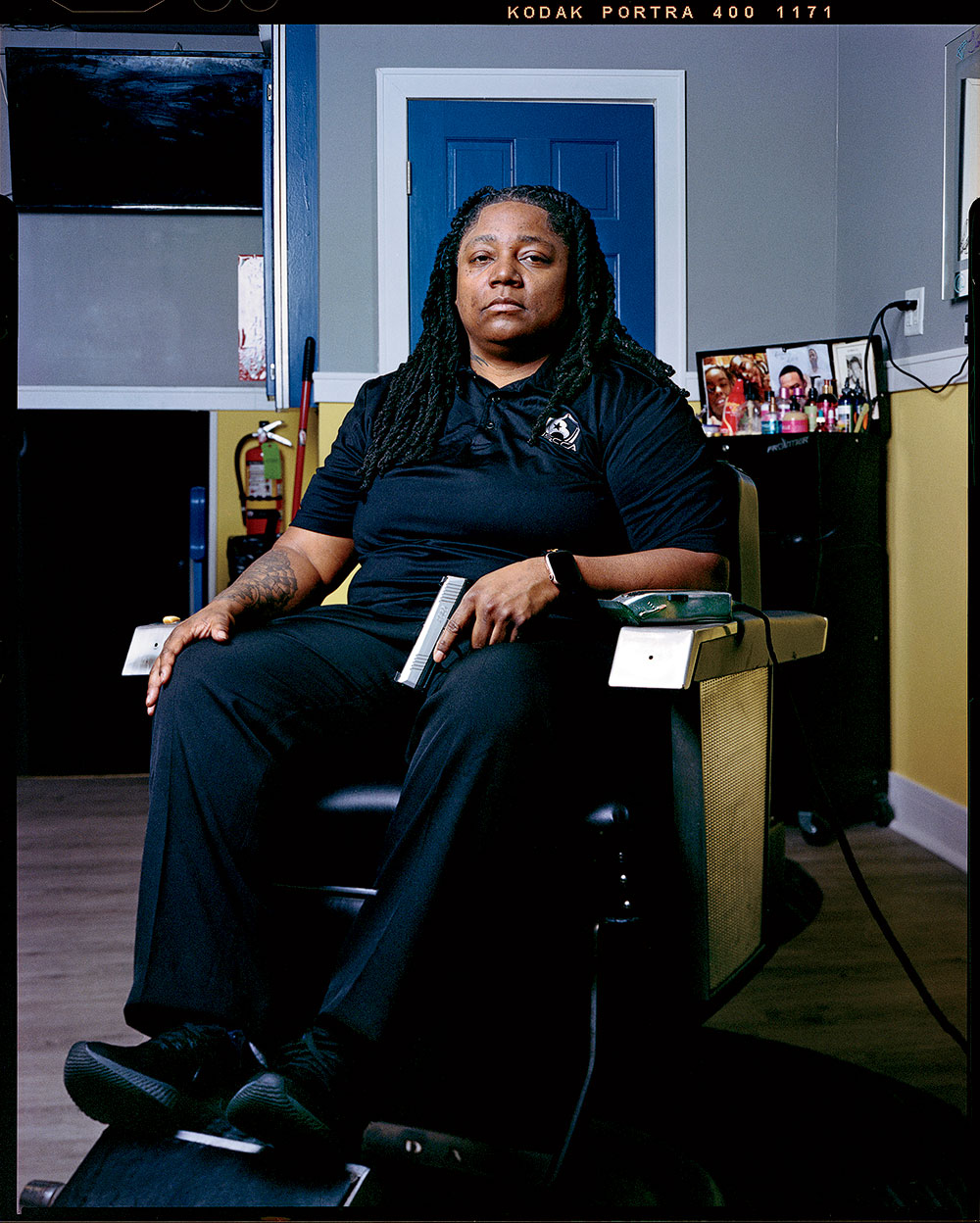
Lashan Petties
Petties, the owner of Go Gettaz Barber & Beauty Salon in Austin, was in her car in a Wendy’s drive-through when someone pointed a gun at her. Though she emerged unscathed, the incident made her want to start carrying a weapon. Eventually, she became a concealed-carry instructor. She says she has licensed some 750 people in the city. “We sleep better at night knowing we are well protected in this salon,” says Petties, 49. “Before you come in here thinking you’re going to do something, you’re going to have to take a second look — and a second guess.”
Listen to Lashan Petties
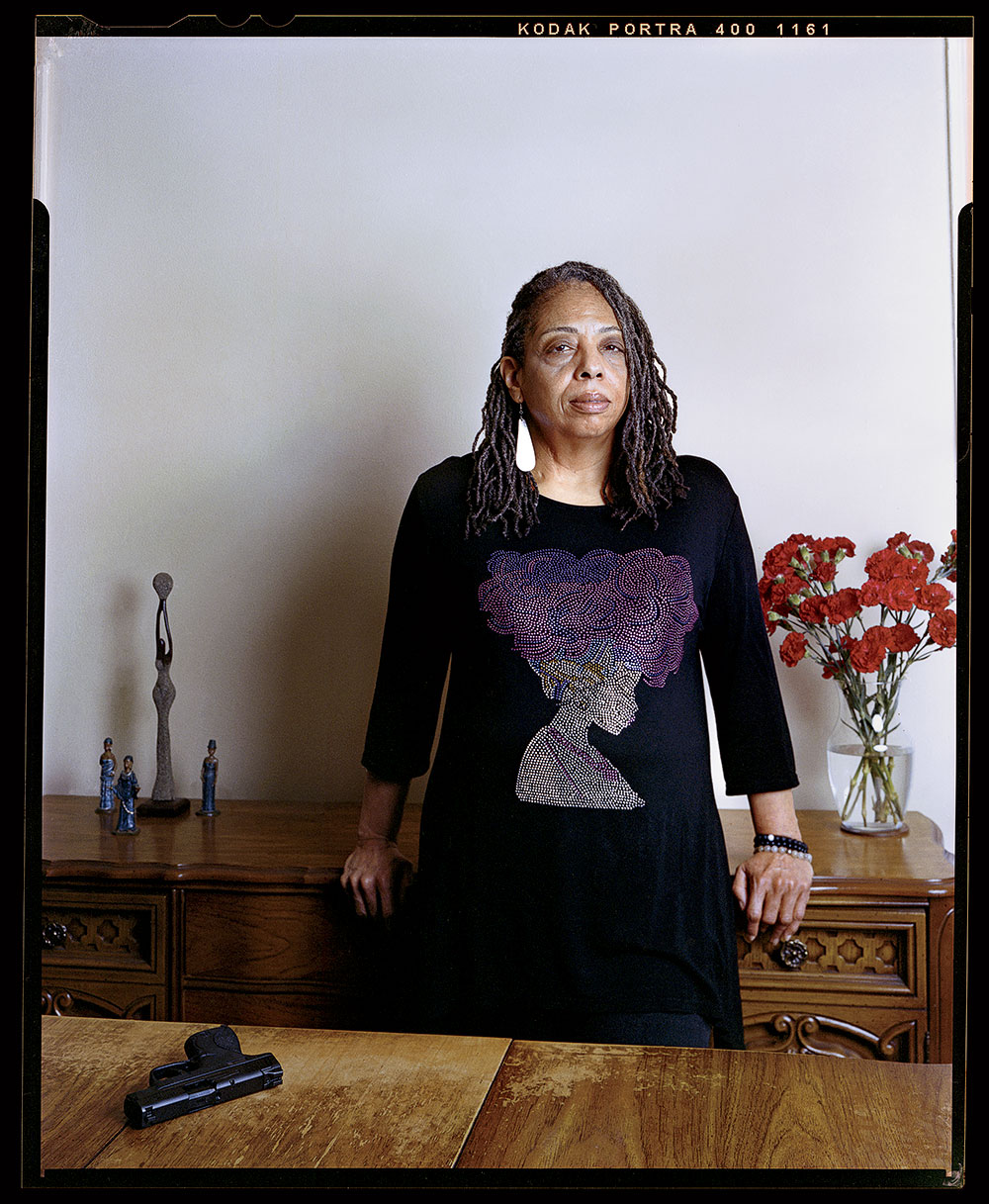
Renee Nowlin
Nowlin considers herself a survivor, not a victim. But it wasn’t always that way. In the mid-1980s, the South Chicago resident was stabbed after she ended a relationship. “I started to feel that I needed to do things to protect myself,” Nowlin, 60, says. She now carries a firearm with her. “Because of everything that’s currently going on with crime and carjacking and things of that nature, it makes me feel I need to be prepared for any situation.”
Listen to Renee Nowlin
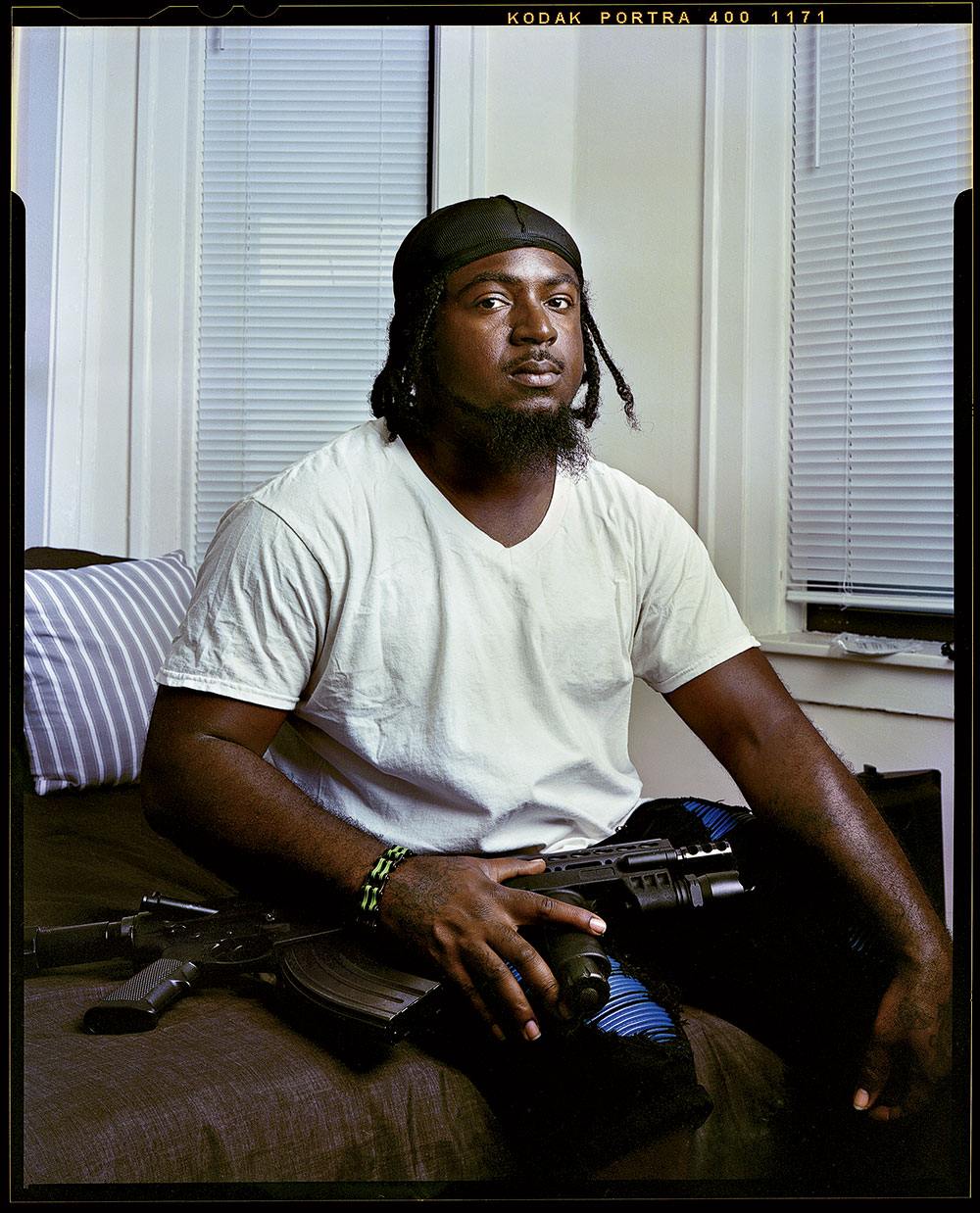
Chuck Chew
The Irving Park resident was introduced to guns at an early age, when his uncles would take him hunting. “Just the feeling it gave me, that made me want to get one — and the feeling of being able to protect your family and yourself,” he says. Chew, 37, gained further firearm experience while attending Carver Military Academy, and he now works as a bodyguard. (His semiautomatic rifle is no longer legal to purchase in Illinois under a new law, but previous ownership is permitted.) “You look at a person like me and think, Here is a thug. But that’s not the case. When the Second Amendment was created, we wasn’t in mind.”
Listen to Chuck Chew
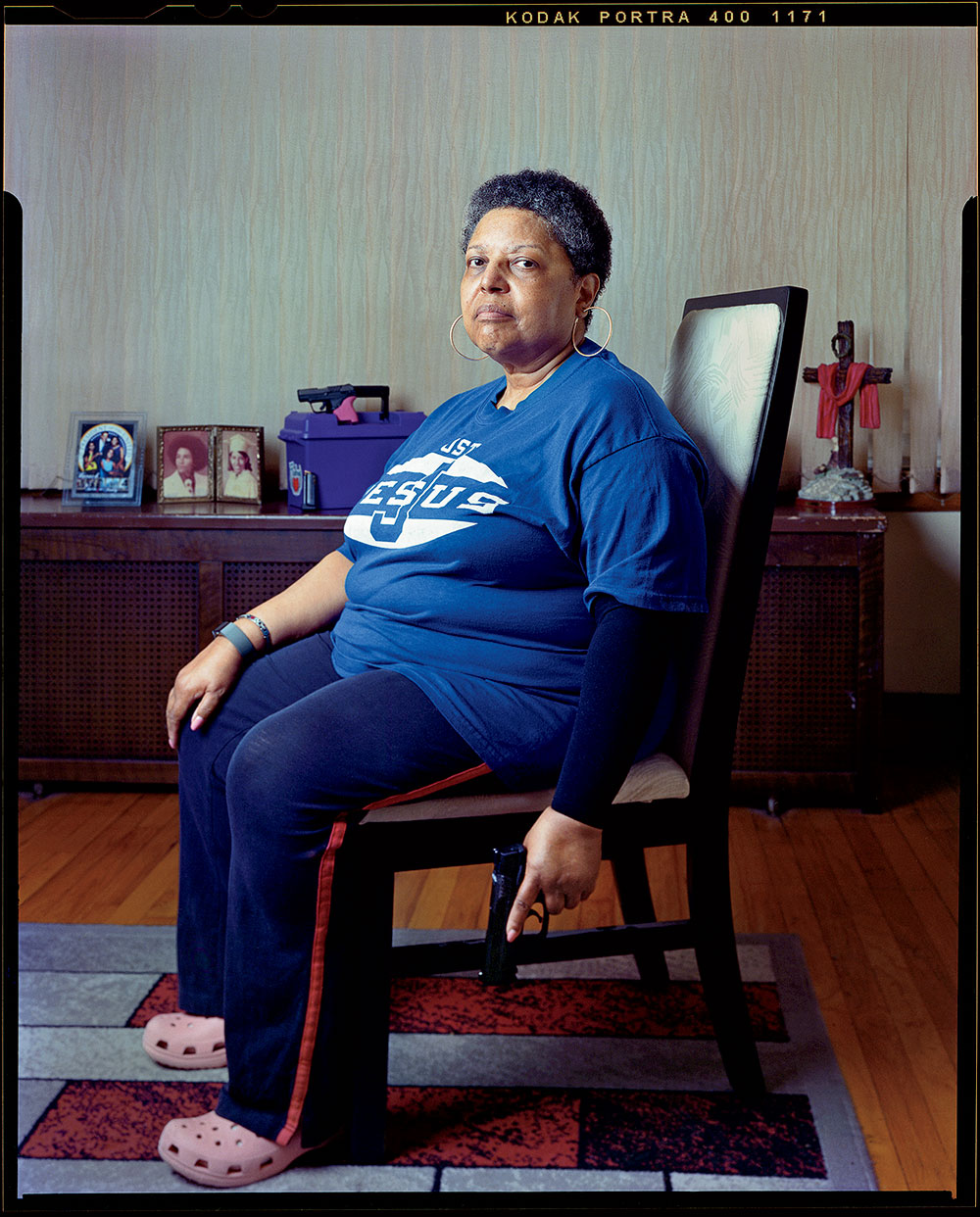
Angela Ross Williams
“The crime that happens in our community is because they’re not providing enough resources to take care of our people,” says the 68-year-old. After deciding to arm herself for protection, the Alabama native noticed that she wasn’t always welcomed by the Chicago firearms world: “Being Black and a woman, going into gun stores here made me feel unworthy. Like I had no rights to be there, and what did I want to do with the gun? I felt angry. It reminded me of the shame we felt during the Jim Crow era.”
Listen to Angela Ross Williams



